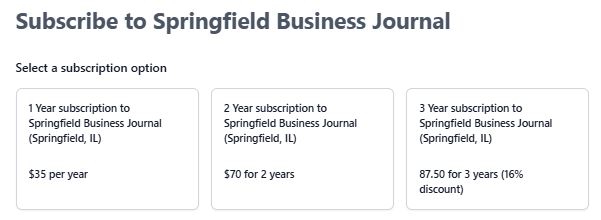In large swaths of rural Illinois, spotting a law firm is about as rare as spotting a skyscraper. These legal deserts – communities with few or no practicing attorneys – are quietly eroding access to justice for the people who call them home. In response, the Illinois State Bar Association has launched initiatives aimed at encouraging young attorneys to consider rural practice, hoping to reverse the trend and bring legal support back to underserved corners of the state.
In its 2020 Profile of the Legal Profession, the American Bar Association defined a legal desert as a county with fewer than one lawyer per 1,000 people. Out of Illinois’ 102 total counties, 80 have fewer than one attorney per 1,000 residents. In more rural counties, the drought is even more severe – 35 counties have 10 or fewer private-practice attorneys and 13 have five or fewer.
For thousands of Illinois residents, this reality means that basic legal help isn’t just inconvenient – it’s hours away, if accessible at all. When communities lack access to legal representation, everyday issues like family disputes, housing problems or small claims can spiral into larger crises. Rural Illinoisans often choose between traveling long distances for help, relying on overburdened legal aid services or forgoing representation entirely. They frequently go without critical basic services like writing a will or reviewing a contract before signing.
Angel Wawrzynek, chair of the ISBA’s Rural Practice Initiative committee, sees the consequences firsthand: “For the lower-income individual, it creates a conundrum where they often don’t have legal representation and have to represent themselves – or they just don’t address the issue,” she said.
In some cases, that means skipping the legal process entirely. “There are people who just handshake and say, ‘We’re divorced,’ and then that’s it. But they’re not divorced. That’s not how you get divorced,” said Wawrzynek. “Even the very basic paperwork – like putting someone in charge of your estate or naming a power of attorney – people just don’t have, because they never met with an attorney.”
The problem threatens to grow more severe as new law school graduates increasingly flock to urban areas such as Chicago to practice, leaving rural communities with dwindling legal resources, especially as aging attorneys retire with no one to take over the helm of their practices.
In response, the ISBA launched the Rural Practice Initiative in 2020, offering two programs to attract attorneys to rural areas. The Rural Practice Summer Fellows program connects law students with rural firms, offering a $5,000 stipend, mentoring and professional development. The Rural Practice Associate Fellows program places new attorneys in permanent rural positions, with a $5,000 starting stipend and another $5,000 after one year.
Woods & Bates, P.C., a small, third-generation law firm in Lincoln, was among the first firms to hire an attorney through the Rural Practice Initiative – a move that partner Blinn Bates says helped overcome key barriers to recruiting in Logan County, which has the third lowest attorney-to-population ratio in the state, with 0.23 attorneys per 1,000 people.
Attracting young lawyers to rural areas has long been a challenge for firms like Woods & Bates.
“A lot of lawyers are coming out of law school with a crushing amount of student loan debt,” Bates explained. “They need a certain amount of income just to make those payments.” That economic pressure often puts small-town salaries out of reach. “We’ve had people tell us flat out, ‘I need this type of salary,’ and we have to say, ‘Well, you’re going to need to go to Chicago to get that.'”
Beyond money, there are social and cultural hurdles, too, explained Bates: “There’s that outsider feeling. You’ve got to get comfortable there, and they’ve got to get comfortable with you.”
The Rural Practice Initiative helps bridge these gaps by providing financial incentives, mentoring opportunities and pledges from participating firms to help introduce new attorneys to the local community, giving firms like Bates’ a better shot at building a sustainable future.
Molly Gregory, a 2023 University of Illinois College of Law graduate who lived in New York City prior to going back to law school, first discovered the ISBA’s rural practice initiatives during her 1L year. She completed the associate fellowship in August 2024, but returning home to practice law in rural Vermilion County wasn’t always the plan.
“I’m through and through a city person… but I kept coming back to the fact that there was such a shortage of attorneys in my hometown, the place that raised me and gave me all the resources I needed,” Gregory said. “It felt very incongruent with who I am to opt to go live the city life for convenience purposes versus coming back here and giving back.”
As someone who chose the road less traveled, Gregory hopes to see more young lawyers help fill the void in rural Illinois counties.
“I think that we, as attorneys, have a moral obligation to use our professional skills to serve our communities,” she said. “We can start by using our legal skills in communities that need it most.”
Annie Fulgenzi is a second-year law student at the University of Illinois College of Law. She is passionate about increasing access to justice in underserved communities and writing about issues related to the law. Prior to law school, she earned degrees in political science and journalism from Southern Illinois University Edwardsville.
This article appears in SBJ May 2025.


